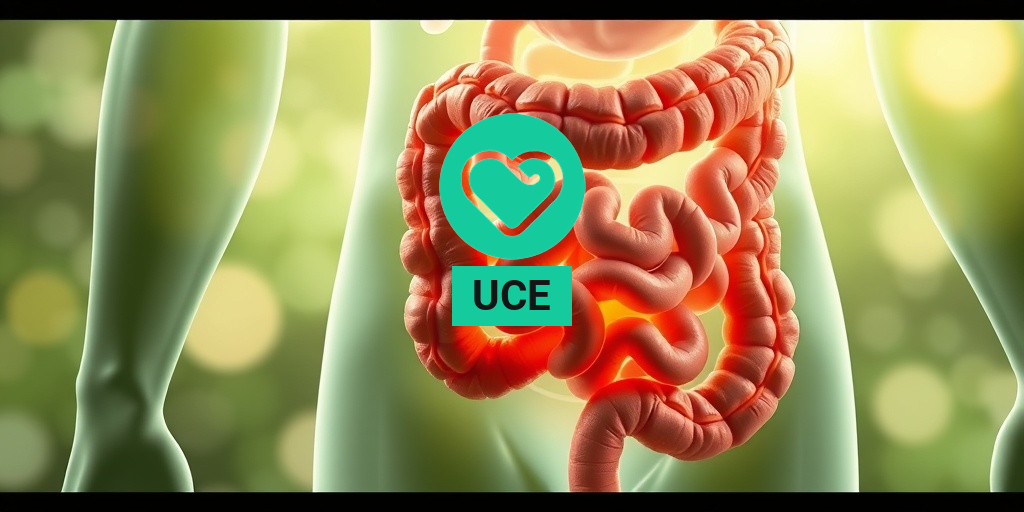What Is UCE?
UCE, or Urothelial Carcinoma of the Urinary Bladder, is a type of cancer that originates in the urothelial cells lining the bladder. This condition is significant due to its prevalence and the impact it has on individuals’ health. UCE is often diagnosed in older adults, but it can occur at any age. Understanding UCE is crucial for early detection and effective treatment.
Understanding the Basics of UCE
Urothelial carcinoma is the most common form of bladder cancer, accounting for approximately 90% of all bladder cancer cases. The urothelium is a specialized tissue that can stretch and contract, allowing the bladder to hold varying amounts of urine. When these cells become cancerous, they can lead to serious health complications.
There are several types of UCE, including:
- Non-invasive papillary carcinoma: This type grows in finger-like projections and does not invade deeper layers of the bladder.
- Invasive carcinoma: This form penetrates deeper into the bladder wall and can spread to other parts of the body.
- Flat carcinoma: This type appears as flat lesions and is often more aggressive.
Risk Factors for UCE
Several factors can increase the risk of developing UCE, including:
- Smoking: Tobacco use is the leading risk factor for bladder cancer.
- Age: The risk increases with age, particularly for those over 55.
- Gender: Men are more likely to develop UCE than women.
- Exposure to chemicals: Certain industrial chemicals, such as aniline dyes, can increase risk.
- Chronic bladder irritation: Conditions that cause long-term irritation, such as urinary tract infections, may contribute to UCE.
UCE Symptoms
Recognizing the symptoms of UCE is vital for early diagnosis and treatment. While some individuals may not experience symptoms in the early stages, others may notice signs that warrant medical attention.
Common Symptoms of UCE
The symptoms of UCE can vary, but the most common include:
- Blood in urine (hematuria): This is often the first noticeable symptom and can range from a faint pink tinge to bright red urine.
- Frequent urination: An increased urge to urinate, even when the bladder is not full, can be a sign of UCE.
- Painful urination: Discomfort or pain during urination may indicate an underlying issue.
- Lower back pain: Persistent pain in the lower back can be associated with bladder cancer.
- Unexplained weight loss: Sudden weight loss without a clear reason can be a symptom of various cancers, including UCE.
When to Seek Medical Attention
If you experience any of the symptoms mentioned above, it is essential to consult a healthcare professional promptly. Early detection of UCE can significantly improve treatment outcomes and survival rates. Diagnostic tests, such as urine tests, imaging studies, and cystoscopy, may be performed to confirm the presence of UCE.
For those seeking more information about UCE and its management, resources like Yesil Health AI (yesilhealth.com) can provide evidence-based health answers and guidance tailored to individual needs.
Conclusion
Understanding UCE and its symptoms is crucial for early detection and effective treatment. By being aware of the risk factors and recognizing the signs, individuals can take proactive steps towards their health. If you or someone you know is experiencing symptoms related to UCE, don’t hesitate to seek medical advice. Remember, early intervention can make a significant difference! 🌟

UCE Causes
Understanding the causes of UCE (Uterine Cervical Erosion) is crucial for prevention and effective management. UCE is a condition where the cells lining the cervix become inflamed or eroded, leading to various symptoms. Here are some of the primary causes:
1. Hormonal Changes
Hormonal fluctuations, particularly during puberty, pregnancy, or menopause, can significantly impact the cervix. These changes can lead to an increase in estrogen levels, which may cause the cervical cells to become more sensitive and prone to erosion.
2. Infections
Infections, especially sexually transmitted infections (STIs) like chlamydia and gonorrhea, can irritate the cervix and contribute to UCE. Additionally, other infections such as bacterial vaginosis can also play a role in the development of this condition.
3. Trauma or Injury
Physical trauma to the cervix, whether from childbirth, surgical procedures, or even aggressive sexual activity, can lead to erosion. This trauma can disrupt the normal healing process of the cervical tissue, resulting in UCE.
4. Chronic Inflammation
Chronic inflammation due to conditions like cervicitis can also lead to UCE. When the cervix is consistently inflamed, it can cause the cells to become damaged and eroded over time.
5. Genetic Factors
Some women may have a genetic predisposition to developing UCE. If there is a family history of cervical issues, it may increase the likelihood of experiencing UCE.
UCE Risk Factors
Identifying the risk factors for UCE can help in early detection and prevention. Here are some key factors that may increase the likelihood of developing UCE:
1. Age
Women in their teenage years and those in their early twenties are at a higher risk for UCE. This is often due to the hormonal changes and increased sexual activity during this period.
2. Sexual Activity
Having multiple sexual partners or engaging in unprotected sex can increase the risk of STIs, which are significant contributors to UCE. Practicing safe sex is essential in reducing this risk.
3. Previous Cervical Issues
If a woman has a history of cervical problems, such as previous UCE or other cervical abnormalities, she may be at a higher risk for developing UCE again. Regular check-ups and screenings are vital for monitoring cervical health.
4. Smoking
Smoking has been linked to various reproductive health issues, including cervical erosion. The harmful chemicals in cigarettes can weaken the immune system and make the cervix more susceptible to infections and erosion.
5. Weakened Immune System
A weakened immune system, whether due to conditions like HIV/AIDS or the use of immunosuppressive medications, can increase the risk of infections that lead to UCE. Maintaining a healthy immune system is crucial for overall reproductive health.
6. Lack of Regular Screenings
Not participating in regular cervical screenings, such as Pap smears, can lead to undetected cervical issues. These screenings are essential for early detection and prevention of conditions like UCE.
By understanding the causes and risk factors associated with UCE, women can take proactive steps towards maintaining their cervical health. Regular check-ups, practicing safe sex, and being aware of any changes in their bodies are vital in preventing this condition. 🌸

UCE Diagnosis
Understanding the diagnosis of UCE (Ulcerative Colitis) is crucial for effective management and treatment. This inflammatory bowel disease primarily affects the colon and rectum, leading to a range of symptoms that can significantly impact a person’s quality of life. Here’s a closer look at how UCE is diagnosed.
Symptoms to Watch For
Before a formal diagnosis, healthcare providers often look for common symptoms associated with UCE, including:
- Abdominal pain: Cramping and discomfort are frequent complaints.
- Diarrhea: Often accompanied by blood or mucus.
- Fatigue: Chronic inflammation can lead to significant tiredness.
- Weight loss: Due to malabsorption and reduced appetite.
- Fever: Sometimes present during flare-ups.
Diagnostic Tests
Once symptoms are reported, doctors may recommend several tests to confirm a diagnosis of UCE:
- Colonoscopy: This is the most definitive test for diagnosing UCE. A flexible tube with a camera is inserted into the rectum to visualize the colon and take biopsies.
- Blood tests: These can help identify inflammation and anemia, which are common in UCE patients.
- Stool tests: To rule out infections and check for blood in the stool.
- Imaging tests: CT scans or MRIs may be used to assess the extent of inflammation.
Importance of Early Diagnosis
Early diagnosis of UCE is vital for effective treatment and management. Delaying diagnosis can lead to complications such as severe dehydration, perforation of the colon, or increased risk of colon cancer. If you experience any of the symptoms mentioned, it’s essential to consult a healthcare professional promptly. 🩺
UCE Treatment Options
Once diagnosed, managing UCE involves a combination of medication, lifestyle changes, and sometimes surgical interventions. The goal is to reduce inflammation, manage symptoms, and maintain remission. Here’s an overview of the treatment options available.
Medications
Medications are often the first line of defense against UCE. They can help control inflammation and alleviate symptoms:
- Aminosalicylates: These anti-inflammatory drugs are commonly used to treat mild to moderate UCE.
- Corticosteroids: Used for short-term relief during flare-ups, these medications help reduce inflammation quickly.
- Immunomodulators: These drugs suppress the immune system to prevent inflammation.
- Biologics: Target specific pathways in the inflammatory process, offering a newer approach to treatment.
Lifestyle Changes
In addition to medications, certain lifestyle changes can significantly improve the quality of life for those with UCE:
- Dietary adjustments: Keeping a food diary can help identify triggers. Many patients find relief by avoiding high-fiber foods, dairy, and spicy dishes.
- Hydration: Staying well-hydrated is crucial, especially during flare-ups.
- Stress management: Techniques such as yoga, meditation, and regular exercise can help reduce stress, which may trigger symptoms.
Surgical Options
In severe cases where medications and lifestyle changes do not provide relief, surgery may be necessary. Surgical options include:
- Colectomy: Removal of the colon may be recommended for patients with severe UCE.
- Ileostomy: In some cases, an ileostomy may be performed, where the end of the small intestine is brought out through the abdominal wall.
Each treatment plan should be tailored to the individual, considering the severity of the disease and the patient’s overall health. Regular follow-ups with healthcare providers are essential to monitor the condition and adjust treatment as necessary. 🌟

UCE Lifestyle Changes
Living with UCE (Ulcerative Colitis) can be challenging, but making certain lifestyle changes can significantly improve your quality of life. Here are some effective strategies to consider:
1. Dietary Adjustments
Your diet plays a crucial role in managing UCE symptoms. Here are some dietary changes that may help:
- Low-Fiber Foods: During flare-ups, opt for low-fiber foods to reduce bowel irritation. Foods like white rice, bananas, and applesauce can be easier on your digestive system.
- Stay Hydrated: Drink plenty of fluids, especially water, to prevent dehydration, which can occur due to diarrhea.
- Avoid Trigger Foods: Identify and avoid foods that trigger your symptoms. Common culprits include spicy foods, dairy products, and high-fat foods.
2. Regular Exercise
Incorporating regular physical activity into your routine can help manage stress and improve overall health. Aim for at least 30 minutes of moderate exercise most days of the week. Activities like walking, swimming, or yoga can be beneficial. 🏃♂️
3. Stress Management
Stress can exacerbate UCE symptoms, so finding effective ways to manage stress is essential. Consider the following techniques:
- Meditation and Mindfulness: Practicing mindfulness or meditation can help calm your mind and reduce stress levels.
- Deep Breathing Exercises: Simple deep breathing exercises can help you relax and manage anxiety.
- Support Groups: Connecting with others who have UCE can provide emotional support and practical advice.
4. Medication Adherence
Sticking to your prescribed medication regimen is vital for managing UCE effectively. Discuss any concerns or side effects with your healthcare provider to find the best treatment plan for you.
UCE Prognosis
The prognosis for individuals with UCE can vary widely based on several factors, including the severity of the disease, response to treatment, and lifestyle choices. Understanding the potential outcomes can help you manage your condition more effectively.
1. Disease Course
UCE is a chronic condition that can have periods of remission and flare-ups. Many individuals experience long-term remission with appropriate treatment and lifestyle modifications. However, some may face more severe symptoms that require ongoing management.
2. Treatment Response
How well you respond to treatment can significantly impact your prognosis. Some patients may find relief with medications like 5-ASA compounds or corticosteroids, while others may require more aggressive treatments, including immunosuppressants or biologics. Regular follow-ups with your healthcare provider are essential to monitor your condition and adjust treatment as needed.
3. Complications
While many people with UCE lead fulfilling lives, there are potential complications to be aware of:
- Colon Cancer Risk: Individuals with long-standing UCE have an increased risk of developing colon cancer. Regular screenings are crucial for early detection.
- Severe Dehydration: Frequent diarrhea can lead to dehydration, which may require hospitalization in severe cases.
- Other Health Issues: UCE can be associated with other health problems, such as arthritis, liver disease, and skin conditions.
4. Quality of Life
Many individuals with UCE can maintain a good quality of life with proper management. Engaging in supportive communities, maintaining a healthy lifestyle, and adhering to treatment plans can help you navigate the challenges of UCE effectively. 🌟
In conclusion, while UCE presents unique challenges, understanding lifestyle changes and prognosis can empower you to take control of your health and well-being. Remember, every individual’s journey is different, and working closely with your healthcare team is key to achieving the best outcomes.

Frequently Asked Questions (FAQ)
What is UCE?
UCE stands for a specific term that is often used in various contexts. It is essential to understand its meaning based on the subject matter you are exploring. If you are looking for detailed information, please specify the context.
How can I check my UCE results for 2024?
To check your UCE results for 2024, you can visit the official website or portal designated for results publication. Make sure to have your identification details ready for a smooth process.
What are the benefits of UCEprotect?
UCEprotect is a service that helps in protecting against spam and unwanted emails. Some benefits include:
- Enhanced email security
- Reduction in spam messages
- Improved overall email management
What is the difference between UCEprotect L2 and L3?
The main difference between UCEprotect L2 and UCEprotect L3 lies in the level of protection and the criteria used for filtering. L3 typically offers a more stringent filtering process compared to L2.
How can I learn German effectively using UCE methods?
If you are interested in learning German, consider using UCE methods that focus on immersive learning, interactive exercises, and consistent practice. Resources like language apps, online courses, and conversation groups can be beneficial.
What does UCE in full stand for?
The full form of UCE can vary based on the context. It is advisable to clarify the specific area you are inquiring about to provide a more accurate definition.
What is the UCEA family office?
The UCEA family office refers to a private wealth management advisory firm that serves high-net-worth individuals and families. It provides a range of services including investment management, estate planning, and tax advice.
Where can I find more information about UCE?
For more information about UCE, you can explore official websites, educational platforms, or forums dedicated to the specific area of interest related to UCE.




